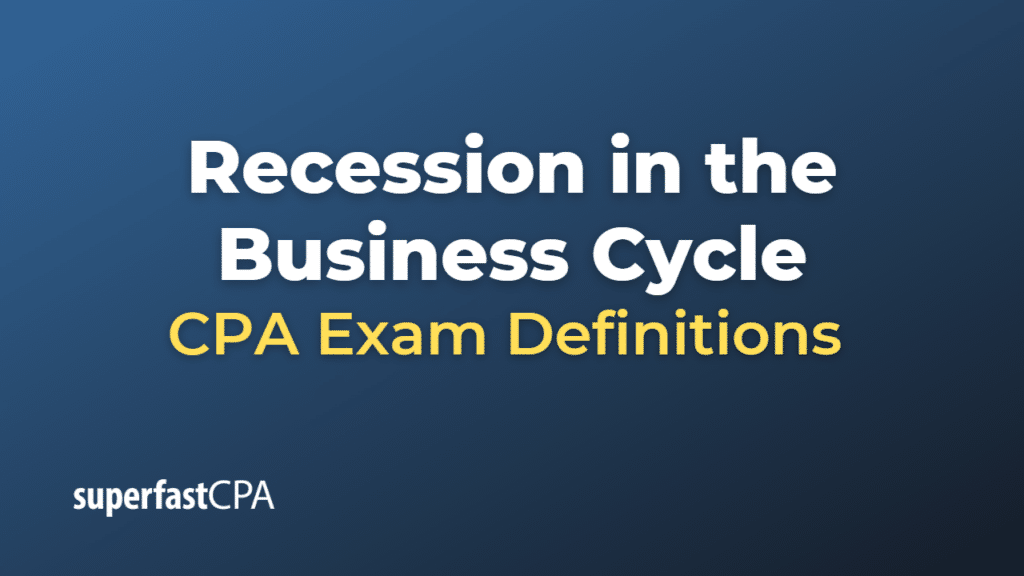Recession in the Business Cycle
A recession in the business cycle is a period of negative economic growth that lasts for at least two consecutive quarters or six months. During a recession, the economy contracts, leading to a decline in key economic indicators such as Gross Domestic Product (GDP), employment, consumer spending, and business investment.
Recessions are characterized by several features, including:
- Decreased demand: As consumer and business confidence declines, spending on goods and services decreases, resulting in lower demand across various industries. This drop in demand can lead to reduced production and further economic contraction.
- Rising unemployment: Due to decreased demand and lower production levels, businesses may reduce their workforce, leading to an increase in unemployment rates. High unemployment can further reduce consumer spending and amplify the economic downturn.
- Reduced business investment: Uncertainty about future economic conditions can cause businesses to delay or cancel investment plans, contributing to slower economic growth.
- Tighter credit conditions: Banks and other financial institutions may become more risk-averse during a recession, leading to tighter lending standards and reduced credit availability. This can exacerbate the economic downturn by making it more difficult for businesses and consumers to access financing.
- Lower inflation or deflation: With reduced demand and production, the overall price level may decline or grow more slowly, leading to lower inflation or even deflation.
Recessions are a natural part of the business cycle, which consists of alternating periods of economic expansion and contraction. While the timing, duration, and severity of recessions can vary, they are generally followed by a recovery phase in which the economy starts to grow again, eventually leading to a new expansion phase. Policymakers often implement fiscal and monetary measures during recessions to stimulate economic activity and mitigate the negative impacts on businesses and households.













